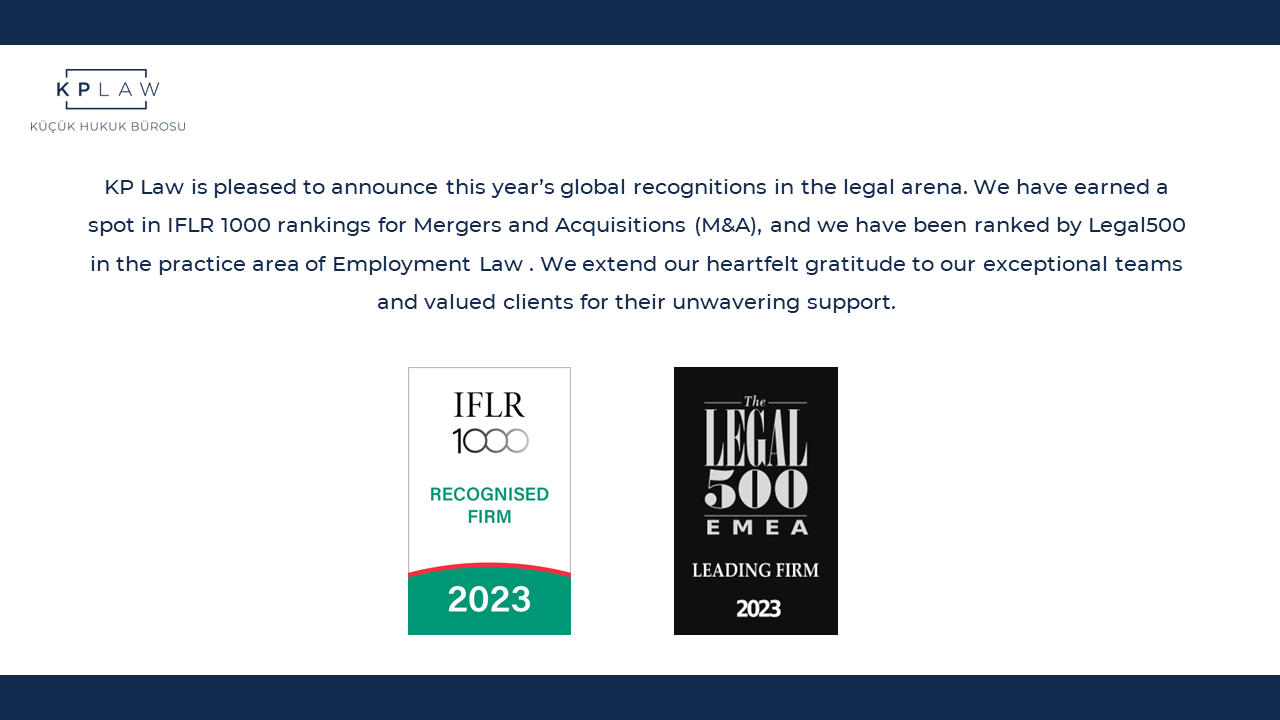News & Insights
Common Legal Mistakes to Avoid for Emerging Tech Companies That Affect Revenue

Onur Küçük | MANAGING PARTNER
14.07.2023We often advise fast-growing technology companies and their teams on common mistakes to avoid. In this article, we'll highlight the critical areas you should pay attention to in order to avoid negatively impacting your company's revenue.
1) Selling your software without a contract tailored to your business.
Having a contract for selling your software that aligns with your business is crucial. Many startups use a generic Terms of Service or SaaS agreement obtained from a friend or similar company's website, which can lead to lengthy negotiations and potential loss of business due to poorly written or unclear terms. A tailored contract reduces the risk of litigation and ensures clear terms between you and the customer, which can prevent disputes and set expectations.
2) Choosing the incorrect type of entity when setting up the business.
Many startup founders prioritize simplicity, low cost, and minimizing distractions when launching their businesses, causing entity formation to be overlooked. However, setting up an entity is essential for attracting investment and limiting personal liability. Choosing the right type of entity can significantly impact not only founders and employees but also potential investors.
3) Assuming your intellectual property is safeguarded.
For a startup, intellectual property can be a crucial asset, particularly as it establishes its unique identity or seeks investment. However, to safeguard its intellectual property, the startup must have a clear comprehension of the different types of intellectual property and the means of acquiring or transferring rights for each category.
If a startup fails to comprehend whether it owns intellectual property, it may be left at the mercy of third parties or may be unable to defend its use of intellectual property against competitors. Additionally, neglecting to ensure that it possesses the rights to specific intellectual property can impede fundraising efforts, as investors (and their legal teams) will scrutinize the startup's intellectual property rights as part of their due diligence process.
4) Failing to negotiate terms when purchasing from third-party service providers.
Startups often depend on third-party service providers for various functions. Typically, when entering into an agreement with a service provider, the startup will sign the provider's Master Service Agreement (MSA). It's crucial to review the terms of the MSA to ensure they align with the startup's expectations. However, the MSA is usually drafted in favor of the service provider, which may necessitate negotiation and redlining of the agreement to make it more mutually beneficial and limit risk.
5) Informal or unclear promises of equity.
When cash is limited, founders may promise equity as payment for help without a binding agreement. However, this can lead to disputes and issues when the equity is not issued or the work expected is not done. To avoid this, be careful when offering equity and make sure there is a binding agreement in place. Generally, it is also recommended to commit to a fixed number of shares instead of a percentage, as percentages can lead to ambiguity.
6) Hiring contractors abroad without considering compliance.
After Covid-19, startups have gone global, hiring independent contractors from various countries. While this approach has benefits, it also poses compliance risks. The two most expensive mistakes we see are treating contractors as employees and using them for data processing without complying with privacy regulations. These errors can lead to costly consequences. Therefore, it's essential for startups to keep themselves informed about the relevant legal requirements and ensure that they are meeting compliance standards.
7) Using someone else's privacy policy.
Unfortunately, this happens frequently, and some copycats are so careless that they don't bother to remove references to the other company before posting the policy on their own website or mobile app. The major issue with copying someone else's privacy policy is that the commitments and representations made in the policy create a legally binding obligation for your startup. If the policy you copied doesn't match your actual practices or contains unintended information, your company could still be held responsible for those commitments.
8) Making a joint venture or strategic alliance without careful consideration.
During the structuring process, it's crucial to have a comprehensive negotiation between partners to ensure a clear understanding of the agreement. Your agreement will establish shared goals and assign responsibilities. Misaligned goals and unclear expectations due to lack of understanding can lead to conflicts, inefficient decision-making, and poor communication, which can hinder progress and ultimately lead to the alliance's failure.
In summary…
During our meetings with clients, we emphasize the importance of being aware of these common mistakes to avoid. By knowing the potential dangers, startups can proactively avoid the risks that may lead to costly complications.

